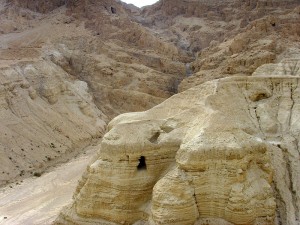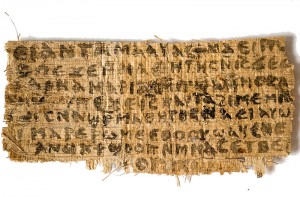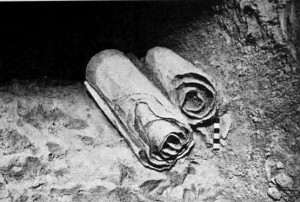Theology of the Dead Sea Scrolls
Thank you for posting about my lecture and John Collin’s lecture at the Franklin Institute, Theology of the Dead Sea Scrolls. Glad you enjoyed the program.
Some comments:
Collins #1
I think his view is unlikely since the pottery in the caves with the scrolls is distributed over the entire period of sectarian occupation.
Collins #2
In my view both political issues and issues of priestly vs Pharisaic law led to the schism. I don’t agree with Collins’ later dating of the schism.
Schiffman #1
Collins agreed that the Torah and Prophets were closed, give or take Daniel. He correctly alluded to evidence that some books continued to be disputed. My view is that the Qumran sect had a closed canon even if it may have excluded something (Esther?) or included something (Jubilees and Aramaic Levi Document) not in the Pharisaic Rabbinic collection.
Schiffman #2
I see the Qumran site as the religious center of a large group of sectarians. I assume that those who lived there had families and those who came for shorter periods to study left their families. I agree that the Rule of the Community was primariy aimed at the sectarians… Continue reading
Lectures in October
 My lecture at the Franklin Institute on October 11, Theology of the Dead Sea Scrolls, has been sold out!
My lecture at the Franklin Institute on October 11, Theology of the Dead Sea Scrolls, has been sold out!
On Oct. 21, I will be at Mikveh Israel in Philadelphia discussing the Dead Sea Scrolls exhibit currently running at the Franklin Institute. Entrance is free.
Also on Oct. 21, I will be speaking for Project Identity on “The State of New York’s Jews: A Historian’s Perspective on the Metropolitan NY Population Study.”
I will be lecturing at the Yeshiva University Museum at The Center for Jewish History, 15 West 16th Street, on Sunday, October 28, 11:00am-3:00pm. The title of the lecture is Eruv and Sectarianism in Ancient Judaism.
UPDATE: The Mikveh Israel lecture is being rescheduled, but a new date has not been announced yet.
“Jesus’ Wife” in the News Again
 Moment Magazine asked my opinion on the newly discovered papyrus which refers to Jesus’ wife:
Moment Magazine asked my opinion on the newly discovered papyrus which refers to Jesus’ wife:
The Da Vinci Code—which popularized the notion that Jesus was married—is back in the news with the discovery of a fourth century papyrus text written in Coptic that refers to “Jesus’ wife.” But scholars say that the discovery does little to prove the theory, other than show that such speculation is nearly 2,000 years old.
“There is zero evidence that he was married,” says Lawrence Schiffman, a Dead Sea scroll expert who has also studied early Christianity extensively. “This text just shows that some people in the fourth century believed he was married.”
Read the rest of the article at In the Moment.

